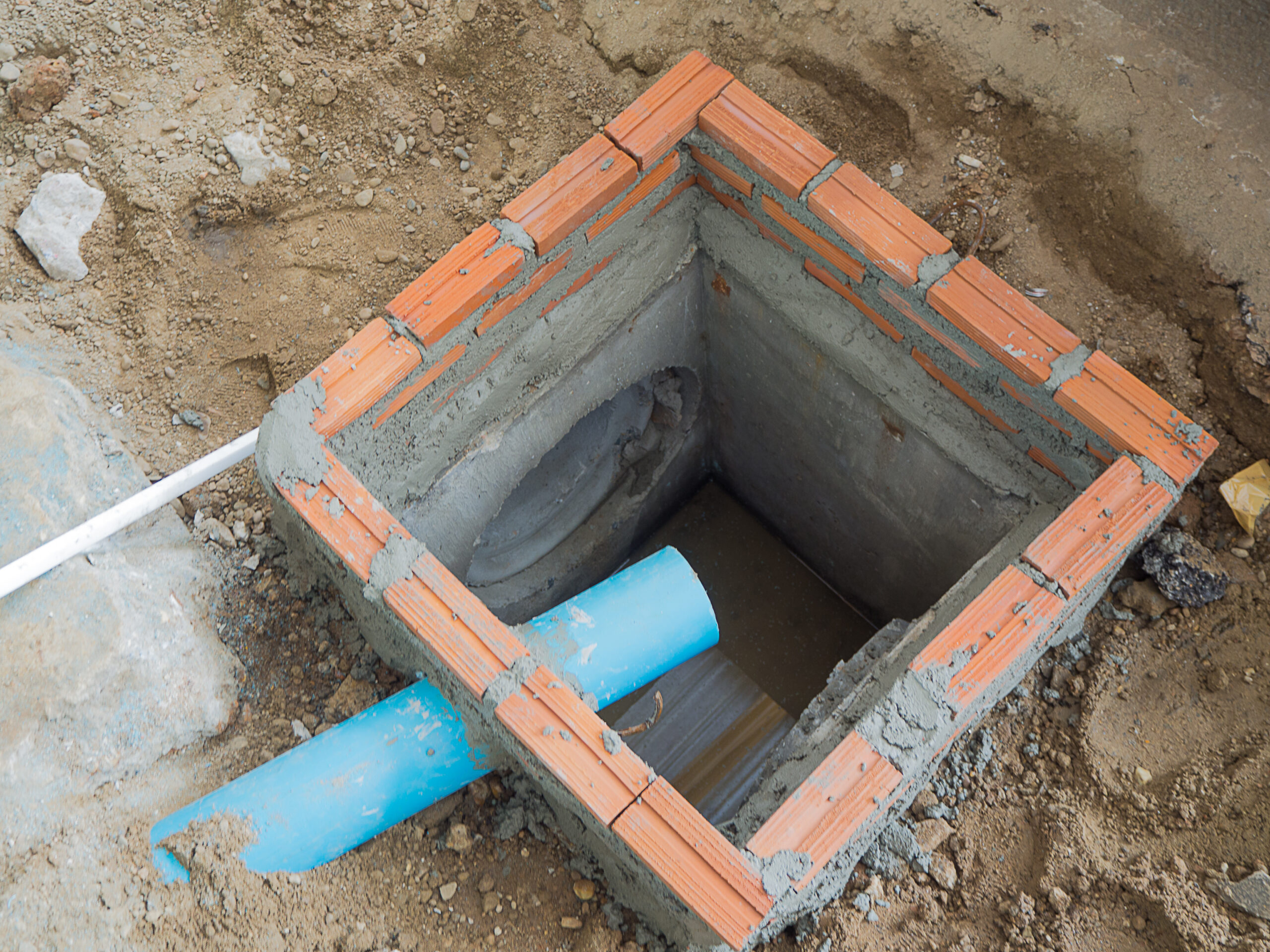
Building a sewer , Pollution and environment in the cities concept.
Dealing with clogged sewer lines can be a messy and unpleasant experience. That’s why it’s important to know what not to do in order to prevent these issues from happening in the first place. In this guide, we’ll discuss some common mistakes that can cause sewer line blockages and provide helpful tips on how to avoid them. With these tips, you can keep your sewer lines running smoothly and save yourself from potential headaches and costly repairs. So let’s get started!
Avoid Pouring Grease or Oil Down Your Drains
One of the biggest mistakes people make when it comes to their sewer lines is pouring grease or oil down their drains. Grease and oil can solidify in your pipes, causing buildup and blockages over time. This not only affects your own plumbing system but also the entire sewage system in your neighborhood. Instead of pouring grease or oil down the drain, dispose of it properly by letting it cool and then throwing it in the trash.
Be sure to not only follow these tips ourselves, but also educate others on their importance. This includes teaching children about the proper disposal of grease and oil. Many kids may not realize the impact that pouring these substances down drains can have on sewer lines and the environment. By explaining this to them and setting a good example, we can instill responsible habits in the younger generation and prevent future sewer line issues.
Be Mindful of What You Flush
Another common mistake is flushing items down the toilet that shouldn’t be flushed. This includes paper towels, sanitary products, cotton balls, and even “flushable” wipes. These items can get stuck in your pipes and cause clogs, leading to potential backups and damage to your sewer lines. Stick to only flushing toilet paper down the toilet.
To prevent unwanted items from being flushed down the toilet, you should educate everyone in your household about what can and cannot be flushed. This includes teaching children at a young age about proper bathroom etiquette and explaining the potential consequences of flushing non-flushable items. You may also want to consider placing a sign near the toilet as a reminder for all family members and guests. Encouraging everyone to dispose of items properly can go a long way in keeping your sewer lines clear.
Use Drain Screens or Strainers
Using drain screens or strainers in sinks, tubs, and showers is an easy and effective way to prevent hair, food particles, and other debris from going down the drain. These small devices catch these items before they have a chance to enter your pipes and cause blockages. Make sure to regularly clean these screens or strainers to keep them functioning properly.
Don’t Use Chemical Drain Cleaners
It may be tempting to use chemical drain cleaners when faced with a clogged drain, but these products can actually do more harm than good. Not only are they harmful to the environment, but they can also damage your pipes and create bigger problems in the long run. Instead, try using natural alternatives like a mixture of baking soda and vinegar or invest in a drain snake.
If you’re dealing with a particularly stubborn clog, there are other methods you can try before resorting to chemical drain cleaners. One option is using a plunger to create suction and dislodge the blockage. Another is using a plumbing snake or auger to physically break up the clog. You can also try pouring hot water down the drain to loosen any buildup. If none of these methods work, it may be time to call a professional plumber for assistance.
Don’t Ignore Warning Signs
If you notice slow draining or gurgling noises coming from your drains, don’t ignore them. These are warning signs that there may be an issue with your sewer line and it’s important to address them before they become bigger problems. Regular maintenance and inspections by a professional plumber can help prevent major blockages and damage to your sewer lines.
One of the best ways to keep your sewer lines clear is to act quickly when you notice any warning signs or potential issues. Ignoring a slow drain or strange noises coming from your pipes can lead to bigger problems down the line. As soon as you suspect an issue, be sure to address it and seek professional help if needed. This proactive approach can save you time, money, and hassle in the long run. It’s always better to be safe than sorry when it comes to your sewer lines.
Be Careful with Landscaping
When planting trees or shrubs on your property, be mindful of where their roots may grow. Tree roots can cause major damage to underground pipes, including sewer lines. It’s best to research the root systems of plants before planting them near your sewer lines and if possible, plant them at least 10 feet away from any pipes and any sewer plumbing.
By avoiding these common mistakes and following these tips, you can help keep your sewer lines clear and prevent potential issues. Remember to dispose of grease and oil properly, only flush toilet paper down the toilet, avoid using chemical drain cleaners, address warning signs promptly, and be careful with landscaping. Regular maintenance is also key in keeping your sewer lines running smoothly. By taking these simple precautions, you can save yourself time, money, and the hassle of dealing with clogged sewer lines. Best of luck!


